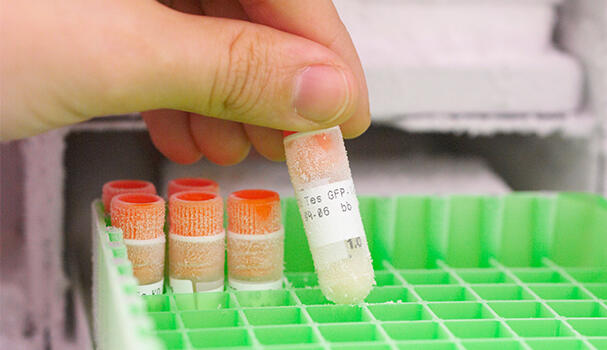Past research into oesophageal cancer

120 years of life-saving discoveries
Our scientists have been at the forefront of cancer research since 1902.
Thanks to you, we’ve come so far. And we will go much further.
Together, we will beat cancer.
Our milestones
Our scientists have made vital contributions to finding new and better ways to treat, diagnose and prevent oesophageal cancer. Below are a few of our most important discoveries.
2014 – Results from a trial we funded show that a ‘sponge on a string’ (cytosponge) can diagnose Barrett's Oesophagus - a condition that increases the risk of developing oesophageal cancer, as effectively as traditional endoscopies. It also shows that patients find it more convenient and comfortable than an endoscopy. Making it easier to diagnose Barrett's Oesophagus could help doctors monitor people with the condition for early signs of oesophageal cancer, when it's easier to successfully treat.
2016 – Further results show that combining the sponge on a string with lab tests can identify people with Barrett's oesophagus who are at low risk of developing oesophageal cancer. These people could be spared uncomfortable endoscopies and monitored by the GP instead. The sponge on a string test is now being rolled out for larger trials in GP surgeries accross the UK.
2016 – Researchers find a new and potentially better way to spot oesophageal cancer at an early stage. Using an infra-red light and a dye, they show this technology can spot abnormal cells that are on their way to becoming cancerous. If removed at this stage, some cases of oesophageal cancer could be prevented.
2011 – We fund a major initiative to crack the genetic code of oesophageal cancers – a UK project that’s part of the International Cancer Gene Consortium (ICGC). In 2015, scientists leading the study find that 'jumping genes' cause genetic chaos and could be an important driver of oesophageal cancer growth.
2015 – Our researchers show that the more genetic mistakes an oesophageal tumour contains, the more aggressive it’s likely to be. They also show that drugs like cisplatin – the standard treatment for oesophageal cancer – are less likely to work when the tumour had lots of mistakes, which could help doctors to better tailor oesophageal cancer treatment.
2016 – Further results from the ICGC study show that oesophageal cancer can be classified into three main types based on their genetic signatures, which could lead to the first personalised medicine clinical trials for this hard-to-treat cancer.
2013 – Our researchers discover that more patients than previously thought benefit from chemotherapy before surgery to remove their tumour. This research increased the length of time before the cancer started growing again, giving people precious more time.
2013 – We show that people with advanced oesophageal cancer benefit from a chemotherapy drug commonly used to treat breat, prostate and lung cancers. The treatment gives people precious more time, without reducing their quality of life.


